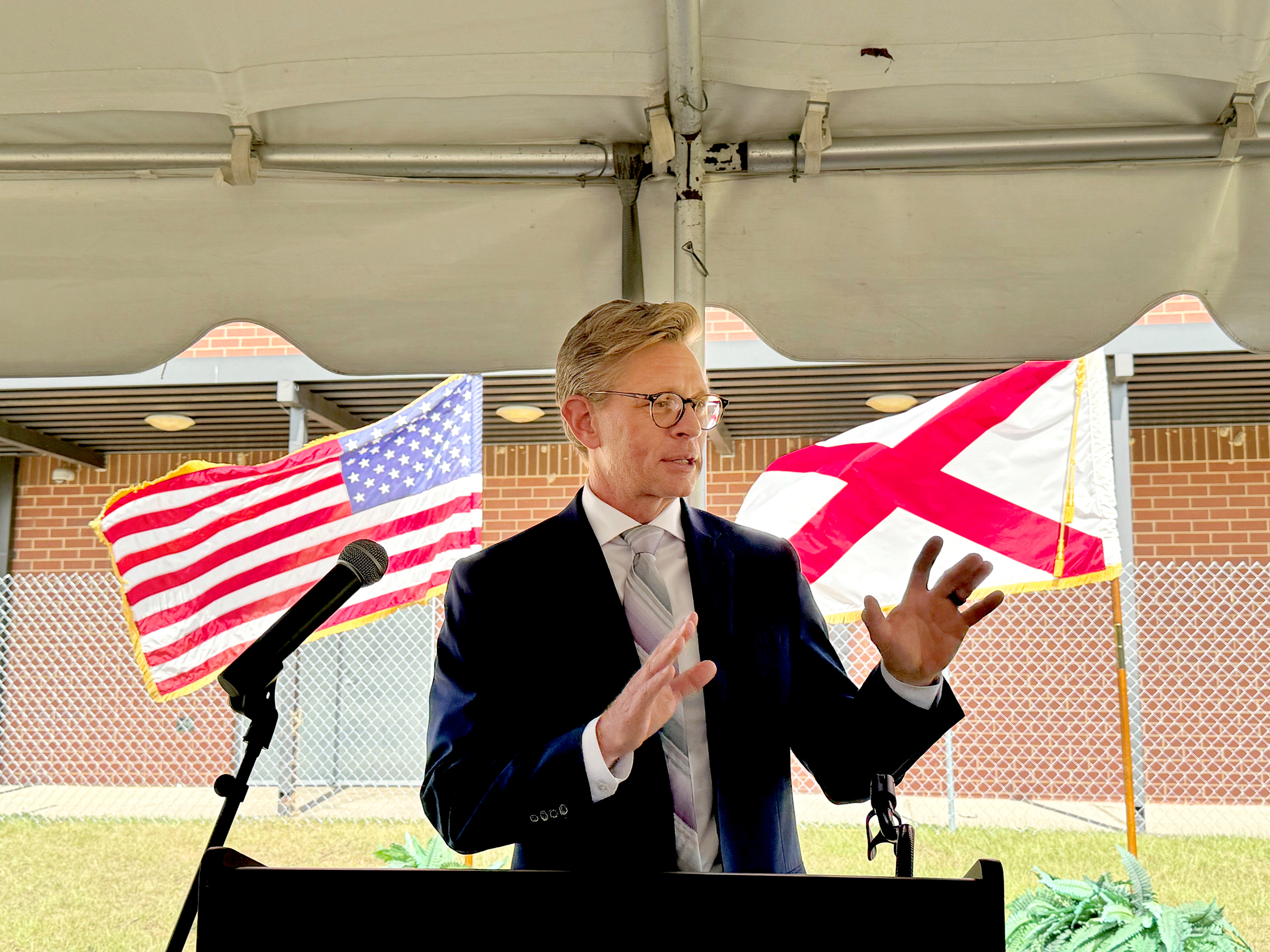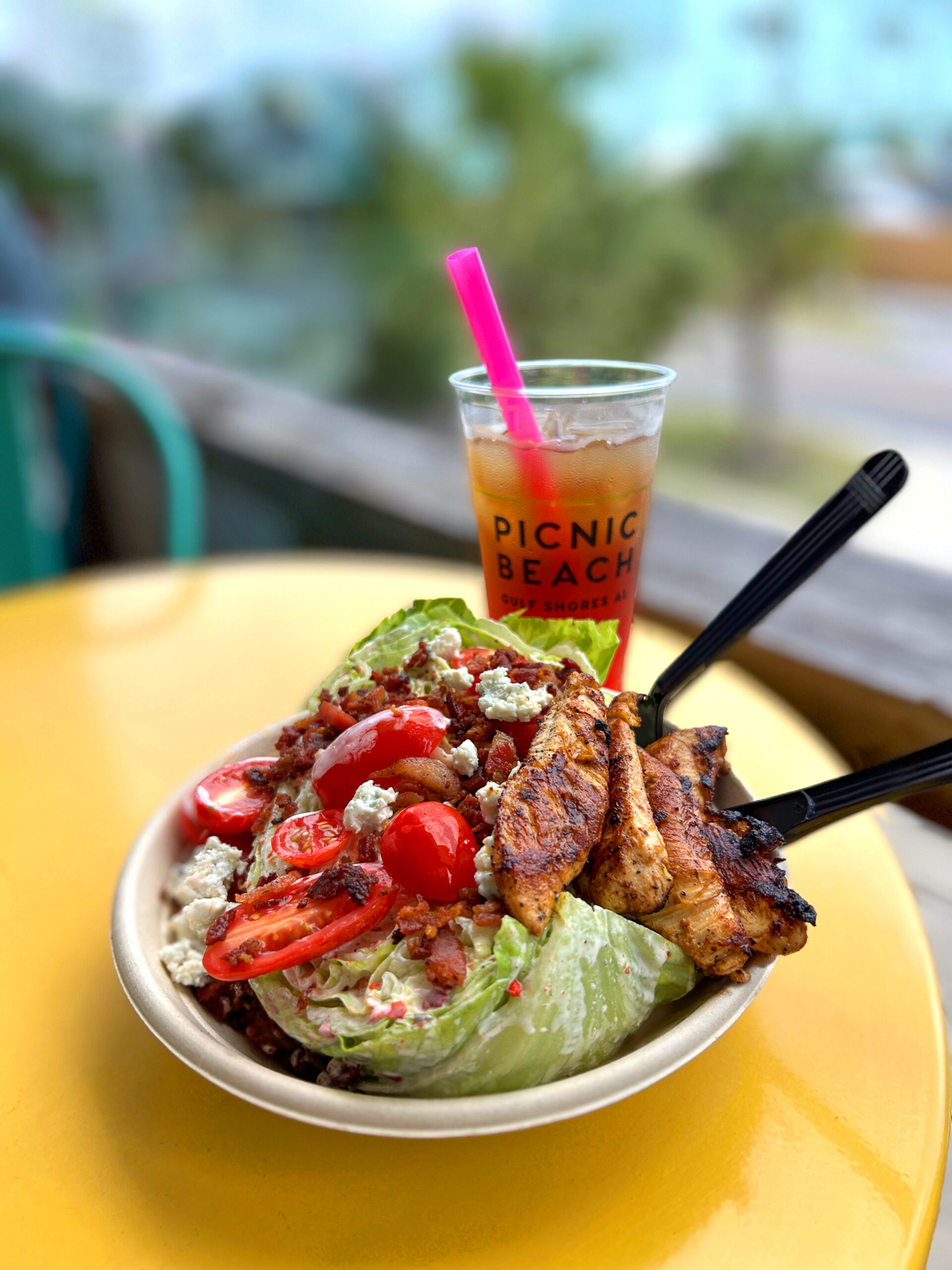By Allison Griffin and Liz Vinson
Coffee roasters are perking up in Alabama’s towns, small cities
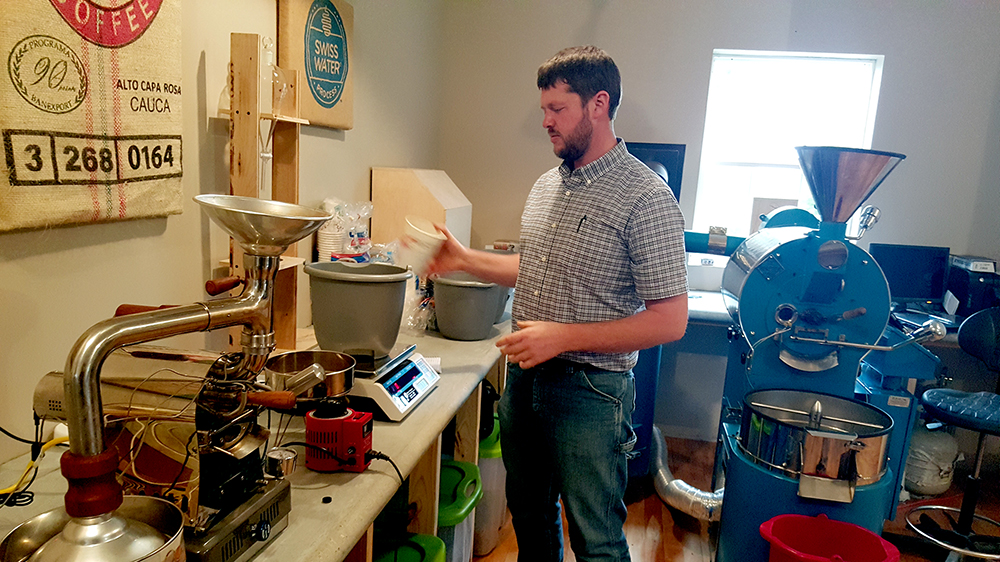
Across the state, the business of roasting coffee beans and transforming them into fresh blends is brewing along very well.
Entrepreneurs have recognized a market for consumers who want a fresh cup of joe that is flavorful and truly original. Now, they’re taking the lead in providing Alabama’s towns and small cities with coffee that is unmatched in quality by the mass-produced, brand-name coffees in the grocery store.
Coffee culture is no longer confined to large cities or to areas like the West Coast or Northeast, generally considered to be trend-setters in anything related to food or taste. Small-batch roasters are finding markets all over the state, and even the Southeast and beyond.
The work isn’t easy, or necessarily even lucrative; some small town roasters hold down other jobs to keep the bills paid. But most will say that owning their own business – coupled with the pride that comes from practicing an artisanal skill and the satisfaction of educating and pleasing customers – is enough to keep them going.
Education is key
Small-batch roasters follow different business models, but they make money either by selling their roasted beans to coffee shops, which use the beans to make coffee and sell to customers; by supplying bags of coffee beans, whole or ground, to grocery stores; or shipping roasted coffee directly to customers who order them.
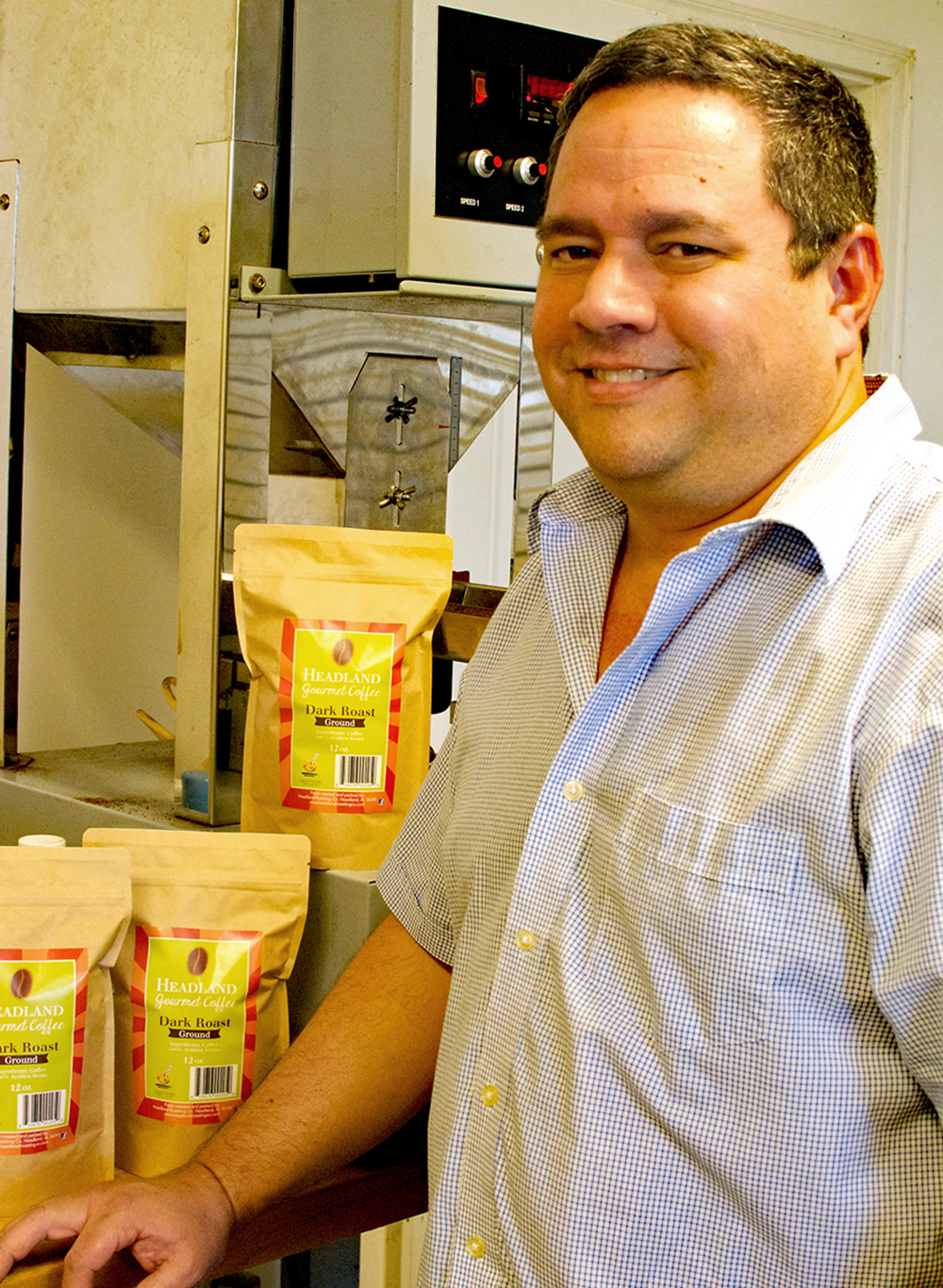
Rodolfo Alger, owner of Headland Roasting Company, a customer of Pea River Electric Cooperative, and his family opened a coffee shop in Daleville, but ended up closing it because it was too far away. Now, the family operates a coffee shop in the Westgate area of Dothan, using their own roasts.
But most of Alger’s business is in the grocery stores around the area. They do supply some offices and churches, a market he’s trying to grow. He doesn’t have an Internet store currently, but will ship bags of coffee to customers who reach out to him via Facebook.
Alger came to the U.S. from his native El Salvador with his family to visit his sister, who was living in Hartford at the time. They liked the area and wanted to raise their family in a rural setting, so they moved to Headland in 2007.
Though the area is rural, he says that the business can easily serve an area within a 100-mile radius.
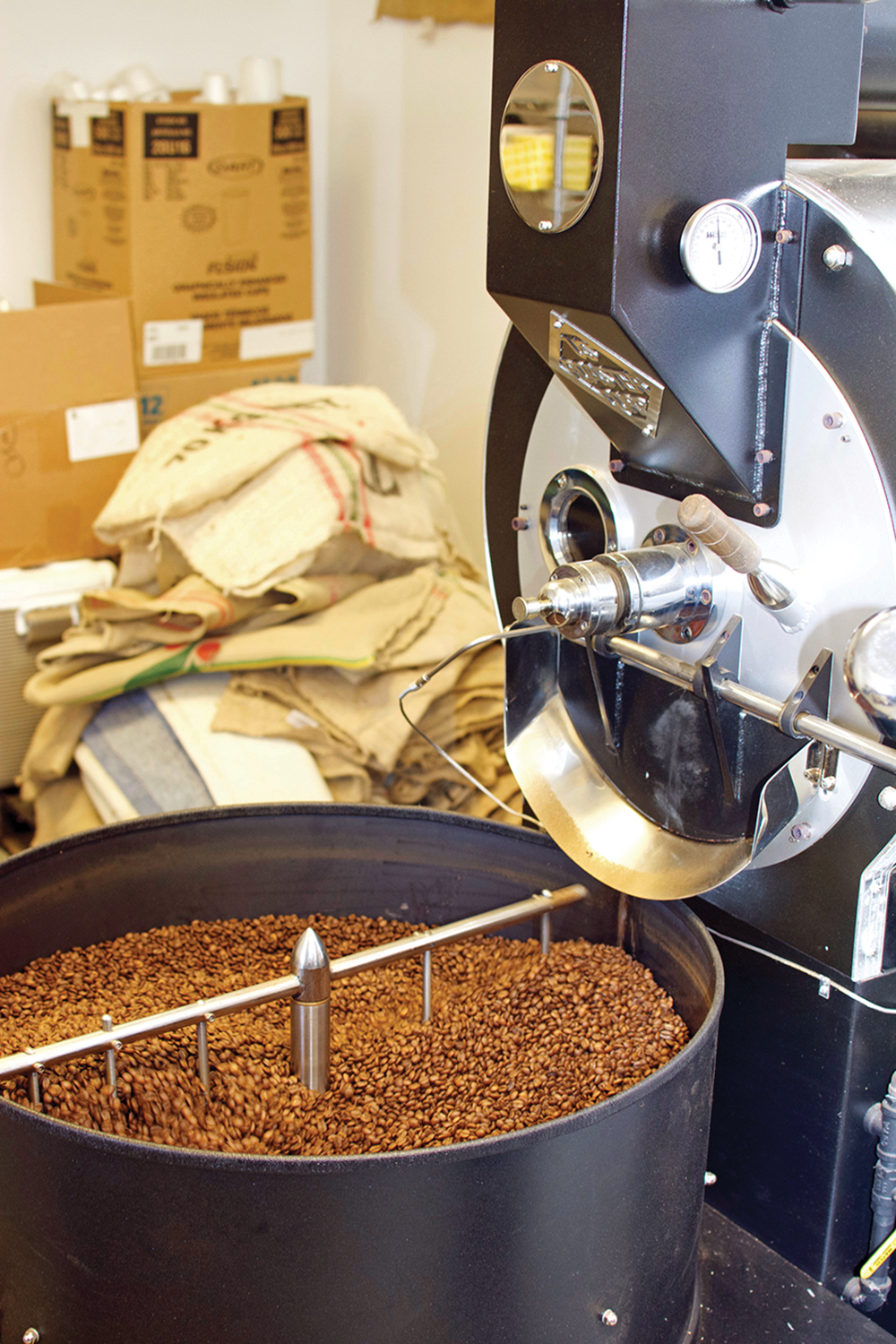
“It’s hard in the sense that the (coffee buying) market is not there, readily available,” he says. “But also, being in a small town, it makes you kind of unique – one of the reasons we named it Headland Roasting Co. is to be connected to Headland, Ala. Better known as just a little town north of Dothan, but a place where there’s a good coffee roasting place.”
For Bodka Coffee in rural Sumter County, between the towns of Gainesville and Emelle, building a roasting business has been tough. “A very poor place to have a coffee business,” owner David Warkentin says.
His brother-in-law in Oklahoma became a roaster, and Warkentin liked the product and the business. He borrowed money to buy a roaster and found a coffee shop willing to buy his product, if he could match or beat the price they were paying and if his quality was good.
He has no problems with quality, but having such a business in west Alabama has not been easy. But both his and his wife’s families are from the area, and leaving would be difficult.
“I’m quite certain that in town, I would have more business,” he says. He doesn’t roast every day of the week, and in fact his primary occupation is in the construction business. He had originally envisioned the coffee being his sole occupation.
Both Warkentin and Alger point to consumer education as the key to future business – making coffee drinkers aware of the difference in quality between a fresh roasted batch and the commercial stuff.
A day a month, Warkentin will have a casual roasting day at his shop, a structure where he roasts that isn’t a sit-down coffee shop. But he invites the community to drop by to taste different blends, have some cinnamon rolls made by his wife and talk about coffee or anything else. Most folks leave a donation, if they don’t buy a bag.
He’d like to work with the shop he supplies to hold more formal educational events, “where I take multiple origins and brew them. Everybody can drink it and taste the difference, and I can explain the differences and talk about how the coffee’s grown and processed.”
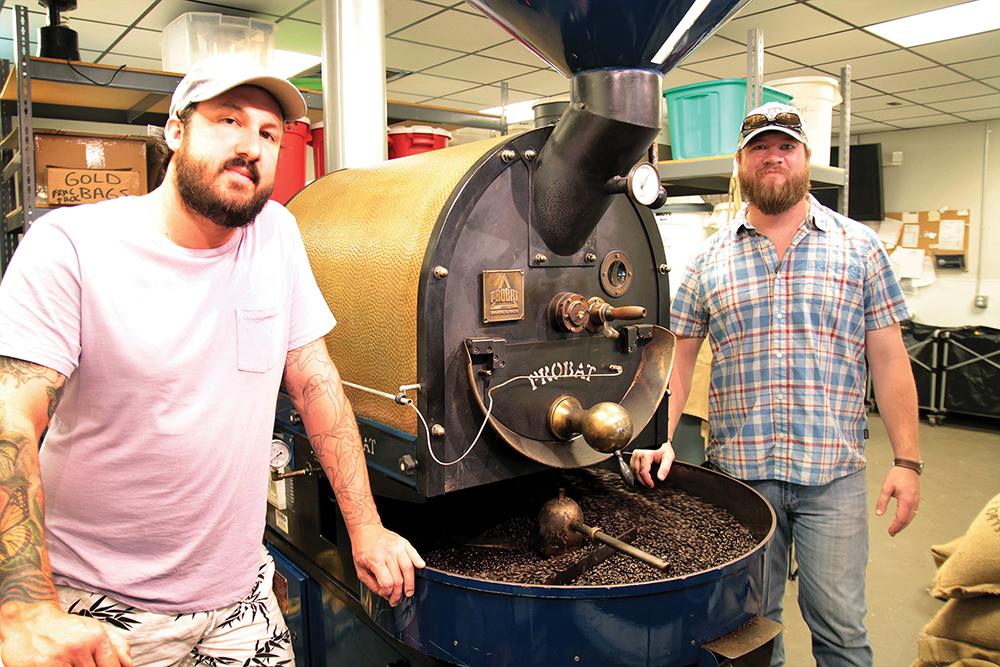
Such events are a big hit for Fairhope Roasting Co. in Baldwin County. The shop holds “Roasting with Rufus” events a couple days a month for a handful of customers to spend a few hours with the roaster (that would be Rufus), watching him and the process.
“It’s really fun that we are able to be the people that are trying to educate in this area,” says Chase Chandler, one of the owners of Fairhope Roasting. “It’s a really rewarding part of our job.”
Fairhope Roasting started out supplying smaller grocery stores and farmers markets, and didn’t focus on starting a café. The company has now expanded into stores in Birmingham, Pensacola and Mobile.
The roaster shares a building with Warehouse Bakery and Doughnuts, and though they’re separate companies, the shared workspace has created a mutually beneficial relationship.
Chandler says having the support of the town of Fairhope has been invaluable. And it doesn’t hurt that Fairhope has a natural tourist draw, both on its own and as a pass through to the beaches.
A strong coffee community
The differences in scale between these roasters are vast. Warkentin, of Bodka Coffee, generally roasts 80-90 pounds per week. Fairhope Roasting Co. roasted 2,152 pounds in a recent month.
But all the roasters say they are committed to quality.
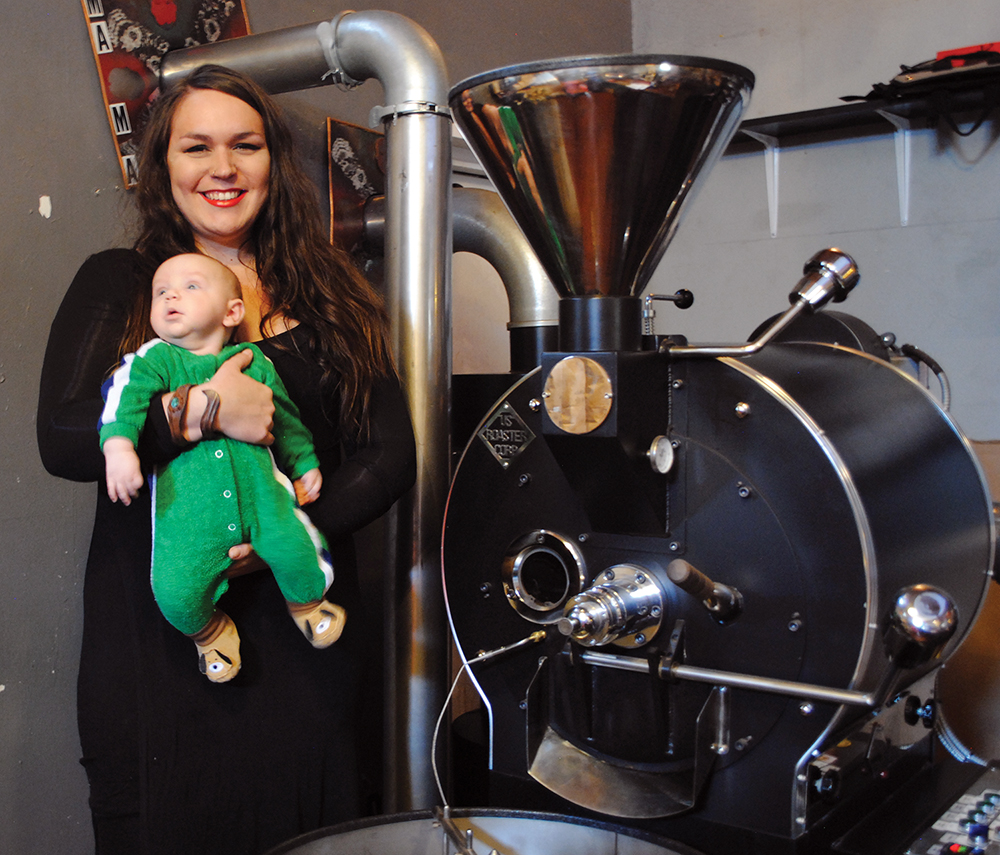
Sarah Barnett Gill, owner of Mama Mocha’s Coffee Emporium in Auburn, recognized that coffee shops needed the attention from a good roaster.
“Coffee shops are everywhere, and there is a need for good and well-sourced coffee,” Gill says. “For those coffee drinkers who seek out excellence in their java, a reputable roaster is worth their weight in gold. Local roasters are so important and give coffee shops a chance to know the science and art of what they’re brewing. It gives the chance to connect on a small scale that brings them one step closer to the farmer.”
For Alger, who roasts about 150 pounds per week, being mindful and conscientious of how long the beans are roasted is a delicate and intricate process. Roasters take the beans, which in their pure state are green in color, and roast them for 12 to 50 minutes, depending on how light or dark the roast is meant to be. They also take pride in freshness.
“Our coffee is fresh and roasted in the same week, versus something that sits for months on the shelf of a grocery store,” Alger says.
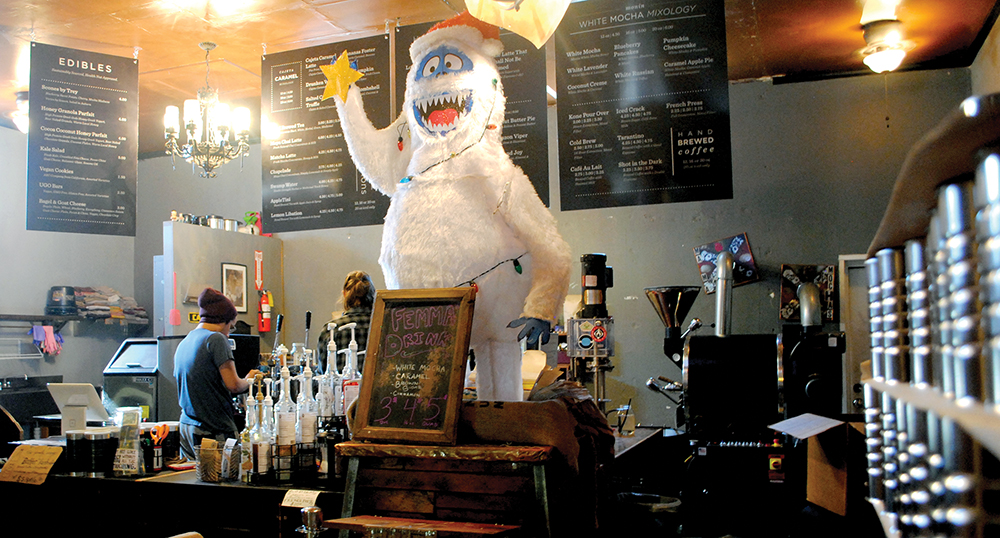
And competition isn’t necessarily a bad thing for the roasters. Chandler says his shop gets along well with other roasters, even larger ones in Birmingham. And people learn more about the coffee when they have different options.
“I think each roasting company gives everything its own little flair, and will have something it’s known for,” he says. “I think it’s very healthy to have other roasters in your area.”



